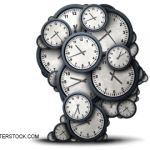Behind the Burnout
While Dr. Jonas questions the rigor of the survey, she says many real reasons explain why rheumatologists may feel increasingly burned out. Many rheumatologists went into the specialty because of the connection they’re able to make with patients, and those relationships have been interrupted during the COVID-19 pandemic. This connection is “hugely important,” she says.
Reflecting on her own practice, Dr. Jonas says she was happy to get basic care to patients in the early days of the pandemic by way of telehealth, but as time wore on, she knew more thorough care was needed and she craved those deeper connections.
“People need to come in for their infusions and need to have their bone density measured,” she says. “We need to get their laboratory tests done. So the longer this goes on, the more challenging it becomes. We feel like we’re missing aspects of people’s care.”
Dr. Jonas had patients who traveled to be with family for safety. But before the rules regulating telehealth were eased during the public health emergency, she couldn’t do a telehealth visit with them—and “this is somebody I’ve known for 10 years.”
Rheumatologists, Dr. Jonas says, have felt “at least some sense that we’re not absolutely doing the best job for our patients,” adding, “You do the best that you can under the circumstances, but it’s not the best.”
Work-life balance may also have gotten thrown off kilter during the pandemic, especially for women physicians who have taken on a disproportionate amount of the additional child-rearing and home-schooling responsibilities that have arisen during the outbreak.
With physicians working from home offices, Dr. Jonas says, “there’s a blurrier line between what’s work and what’s home. I think many of us are spending more time in our home offices than we would have spent in our work offices.”
The burdens of step therapy and obtaining prior authorizations—issues for which the ACR and other physician groups are pushing for legislative solutions—have also continued to weigh on rheumatologists.
Whether these things impacted the survey results, she isn’t sure, says Dr. Jonas. “I think it’s hard to square it all. I think we don’t have enough information to really know how to interpret the data.”
Other Results
A survey-based study led by Dr. Bergman, conducted at a conference and published in 2020, found that 51% of participants demonstrated burnout according to the Maslach Burnout Inventory—and “this conference was in Maui,” Dr. Bergman says.
“The numbers were shocking,” says Dr. Bergman. The biggest correlations were dissatisfaction with the electronic health record, lack of exercise and working more than 60 hours a week.
Although he is quite happy in his job, he says, a lack of autonomy can intrude on the physician-patient dynamic, leading to frustration. That’s particularly true with step therapy and prior authorization. “I can have a discussion with a patient,” Dr. Bergman says. “The patient and I can choose what we feel to be the best, most effective and, usually, the safest treatment option, and I’m then told by an insurance company that I can’t use that therapy.”
Dr. Bergman can’t say with confidence how much the COVID-19 pandemic has contributed to feelings of burnout, but says it’s easy to see how the pandemic could reduce satisfaction, particularly among rheumatologists.
“Rheumatology by design is a hands-on specialty,” Dr. Bergman says. “There’s only so much we get from labs and history. We get a lot. But at some point you need to actually touch a patient. I have found it very difficult. Again, speaking personally, I did not find telemedicine to be as satisfying.”
Part of the reason more physicians are reporting they’re feeling burnout could be that the term burnout is trending, says Dr. Bergman, but, he continues, “maybe there’s more awareness.”
Both Dr. Bergman and Dr. Jonas say that no matter what a Medscape survey says and no matter the level of scientific rigor of the survey, burnout is a problem and needs attention. Burnout has real consequences—not just for physicians, but also for patients, according to Dr. Bergman.
“The quality of the medicine drops. If I’m not into it, what am I going to do? I’m going to rush through the patient encounter,” Dr. Bergman says. “If I’m frustrated and I know it’s a hassle, I may not go to that next level of therapy the patient should be getting, because I just don’t feel like going through the headache of trying to get it approved.”
The surveys conducted by Medscape and Dr. Bergman serve to help providers and practices recognize the challenges and figure out ways to mitigate those challenges to prevent burnout, concludes Dr. Jonas.



